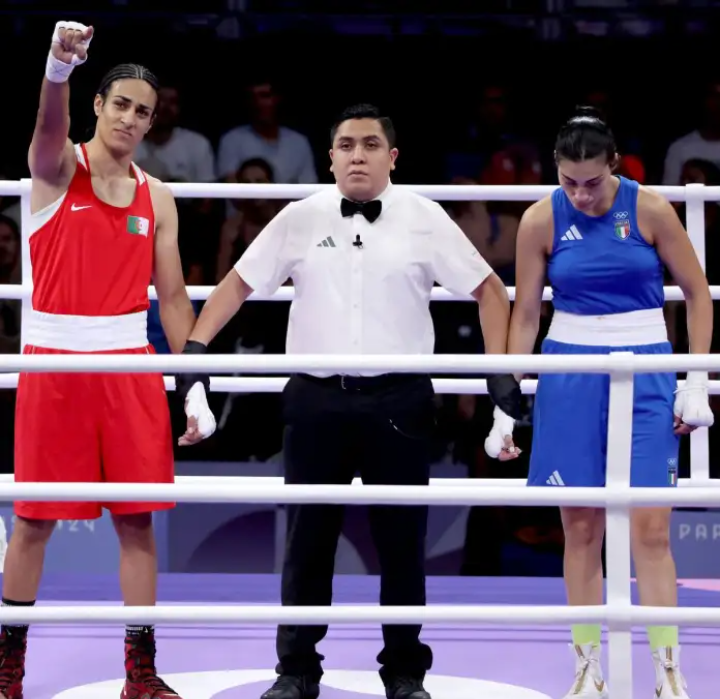By Kayode Sanni-Arewa
Olympics”I quit to save my life, I have never been hit so hard in my life,’ Angela Carini Says, after stopping Olympics bout against ‘biologically male’ opponent.
An Italian boxer abandoned her bout at the Paris Olympics after only 46 seconds on Thursday, refusing to continue after taking a heavy punch from an Algerian opponent who had been disqualified from last year’s world championships over questions about her eligibility to compete in women’s sports.
The Italian boxer, Angela Carini, withdrew after her Algerian opponent, Imane Khelif, landed a powerful blow that struck Carini square in the face. Carini paused for a moment, then turned her back to Khelif and walked to her corner. Her coaches quickly signaled that she would not continue, and the referee stopped the fight.
Khelif, 25, was permitted to compete at the Olympics even though she had been barred last year after boxing officials said she did not meet eligibility requirements to compete in a women’s event.
Another athlete also barred from last year’s world championships under similar circumstances, Lin Yu-ting, has also been cleared to fight in Paris.
The International Boxing Association, which ran those championships and ordered the disqualifications, offered little insight into the reasons for the boxers’ removal, saying in a statement that the disqualifications came after “the athletes did not undergo a testosterone examination but were subject to a separate and recognized test.”
The association said that test, the specifics of which it said were confidential, “conclusively indicated that both athletes did not meet the required necessary eligibility criteria and were found to have competitive advantages over other female competitors.”
Those rules, which the boxing association adopted for the 2016 Rio Games, are the same ones the International Olympic Committee is operating under as the authority running the boxing tournament at the Paris Games. But the rules, the I.O.C. confirmed, do not include language about testosterone or restrictions on gender eligibility beyond a single line saying “gender tests may be conducted.”
In recent days, the presence in the women’s Olympic competition of two boxers who have faced eligibility questions has become the latest flashpoint in the politically charged debate over gender and fair play in sports.
The International Olympic Committee, which is overseeing the boxing competition, said the disqualifications of Khelif and Lin at the 2023 world championships had been “sudden and arbitrary,” and it defended their right to fight in Paris.
“Every person has the right to practice sport without discrimination,” the I.O.C. said.
Carini declined to shake Khelif’s hand after her defeat was announced, then fell to her knees in the ring and began to cry.
“I am heartbroken,” she told reporters afterward. “I went to the ring to honor my father. I was told a lot of times that I was a warrior but I preferred to stop for my health. I have never felt a punch like this.”
She added: “I got into the ring to fight. I didn’t give up. But one punch hurt too much and so I said, ‘Enough.’ I’m going out with my head held high.”
Carini declined to say if Khelif should have been allowed to participate.
“I am no one to judge this match,” she said. “I am not a referee.”
“We can’t punish a woman for naturally having something that other women don’t have,” Shields said. “That’s like saying, ‘Oh, she’s too strong to be at this weight, she’s knocking everybody out, we’re going to put her in the men’s division.’ It has to be some facts that make sense.”
The debate about who should be allowed to participate in women’s sports centers on two flashpoint issues.
One involves transgender athletes like the American swimmer Lia Thomas, who fought an unsuccessful legal battle seeking a chance to qualify for the Paris Games. Some sports, including swimming and track and field, effectively bar from women’s events those athletes who went through puberty as males.
Mark Adams, a spokesman for the International Olympic Committee, said that Khelif of Algeria and Lin of Taiwan, were not transgender athletes and should not be described as such.

